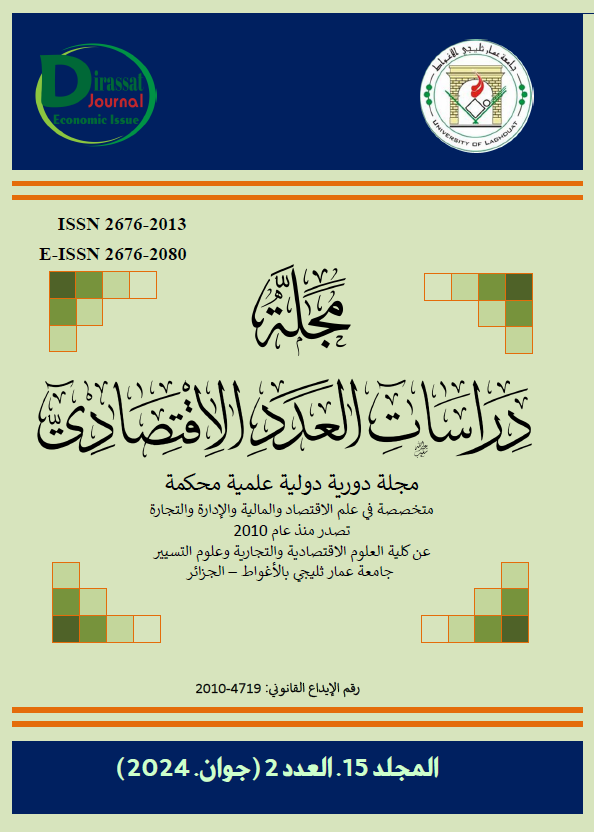Theoretical Foundations of the New Geographic and Territorial Economy
Abstract
Space in economic analysis has gone from a marginal vision to a general recognition, with the principle that no economic phenomena exist without a specific relationship to territories, regions, and rural areas. The study aims to demonstrate the shift in the economy from land and raw materials and the logistics of means of transport that have emptied certain territories to an immaterial economy that provides territories with a new future.
Philipe Aydalot emphasized the foundations of a new approach to the "territorial economy" through the concept of an innovative environment: in a word. This territorial environment promotes collective learning processes among local actors. Using this historical method, we demonstrate that development is no longer conceived as the result of a simple process of spatial diffusion of new technologies but a process of adaptation and creative adoption by local production systems that incorporate them according to their needs and culture.
Downloads
References
Allemand. (2004). Philippe Aydalot. Pioneer of territorial economy. L'Harmattan,.
Coffey. (2000). Geography, economy, regional science. Encyclopedia of Geography, pp. pp 141-157.
Pecqeur. (2000). Quality and territorial development: The assumption of the basket of territorial goods and services. Rural Economy, pp. pp. 37-49.
Pecqueur and al, .. S. (2003). Actors in the exchange sphere and territories: Scenarios for the Agri-food sector. Study for DATAR.
Pecqueur and Benko. (2001). Territory resources and resource territories. Finisterra XXXVI.71, pp. Pp 7-19.
Polese and Shearmur. (2005). "Book Review", Reflections and Perspectives on Economic, pp. pp. 77-86.
Samson. (2003). Contemporary economics in ten lessons.
Samson. (2004). Territory and economic system. In Territory and Economic Systems. 4th proximity days, proximity, networks and coordination. Marseille: UPMF Grenoble.
Scott and Storper. (2006). "Regions, globalization and development". Geography, economy, society, pp. p. 169-192.
Copyright (c) 2024 Mounir Louadj , Souhila Kirat

This work is licensed under a Creative Commons Attribution-NonCommercial 4.0 International License.
















